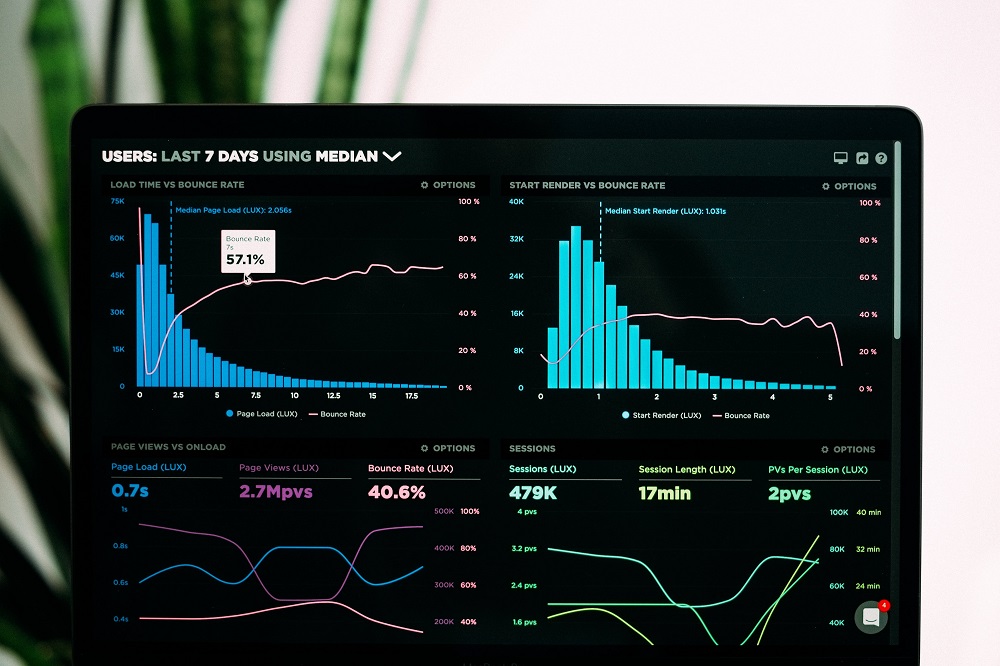Today, data services lie at the core and are a fundamental enabler for any enterprise. A data service helps them to insulate consuming applications from the complexities of the data-at-rest implementation. Data services also assist in resolving the application and data integration challenge. When properly designed and implemented, data services exhibit a significant degree of reuse, thereby reducing service development costs, along with consumer development costs and time-to-market delivery of technologies.
The Importance of Data in Modern Business Landscapes
Data services refer to different categories of software facilitating access to data, management of data, as well as analysis of data. They are emerging as a foundational part of cloud-native application development along with open hybrid cloud IT strategies.
Data Services
Data services are small, independent, and loosely coupled functions that help enhance, organize, share, or calculate data collected and saved in storage volumes. Data services help amplify traditional data by enhancing its resiliency, availability, and validity while also adding characteristics to data that it does not already have. Data service architectures involve multiple kinds of data as well as application services that work together to achieve a goal.
Understanding Data Services
The category of data services is quite broad. Data services assist businesses with the aggregation of data from different parts of an architecture. It also helps in the creation of a central data repository. Data services deal with data in transit or storage. Data services also help in performing various types of analytics on big data sets. Data services come with their benefits and disadvantages. Some of the significant benefits include scalability as well as cost efficiency. One of the biggest drawbacks of data services is the security of data in the usability.
The data consulting services approach to applications helps replace traditional application architectures with innovative applications built from loosely coupled services. Data services provide a modern mechanism to store, manage, as well as process data while also addressing the challenges faced by developers, infrastructure teams, and operators in deploying microservices, serverless, and other modern application architectures. Applications can benefit from data services, including:
-
On-demand caching to cache legacy data as well as increasing app responsiveness.
-
Automated messaging and streaming to offer reliable communication
-
Cloud-native database solutions
-
Data warehouse capabilities for deep analytics
Cloud-based data services provide teams the freedom to choose the right data service for their specific workload. With traditional application architectures, data is likely to become enmeshed in a way that complicates change. Data services facilitate cloud-native apps that are resilient as well as easy to modify. By choosing the right data services, teams can recognize the speed and productivity of self-service along with automated provisioning of data management strategy.
How Does Data Services Work?
When combined with tools, including data virtualization, data services offer an abstraction layer from stored data. Data virtualization supplies the storage platform, while data services perform the programmatic work of retrieving data from the platform. Data services further help in automating the work of locating stored data and present developers and data analysts with simple programmatic tools to extract the insights they need. Data services act as middleware to find and deliver data requested by the application.
Scope of Data Services
Data services are concerned with actions on data entities. The scope of different data services includes manipulations on data entities, aggregation of data from multiple data sources, data mapping between logical interfaces with physical provider interfaces, and error handling of data service errors. Data sourcing and transfer of very large data extracts use data services and data profiling tools. Business processes devise logic and execution of a line of business rules for out-of-scope data services. The logic that is specific to a particular interface or application is out of the scope of a data service.
Read more: The Ultimate Guide: List of Top 10 Best Data Visualization Tools

Data Services - Benefits
Data services encompass a spectrum of data storage, communication, and management tasks that contribute to application transformation. Data services benefits include:
-
Modernization of data: On-demand caching, efficient messaging, and simplifying high-performance for cloud-native apps. Choosing the right data services further helps in reducing the total amount of custom code. Tools like a powerful MySQL IDE can support this transformation by streamlining database development and management workflows.
-
On-demand self-service access: Developers can provision custom instances of the data services required on demand. Automated provisioning further supports rapid development and continuous delivery.
-
Data management at scale: Data services run at scale on different clouds and incorporate features like built-in backups, monitoring, and high availability for successful operations.
-
Built-in security: Modern data strategy services incorporate built-in security, along with the latest capabilities for authentication and authorization encryption.
How can Organizations Benefit from Data Services?
-
By utilizing the right data services, business teams can accomplish the following objectives:
-
Enhancement development and automated provisioning, enabling developers to focus on building resilient apps across multiple clouds.
-
Ensure data security by incorporating the latest security technologies to ensure compliance with regulatory requirements and protect data infrastructures from growing cyber threats.
-
Ease the cloud journey by capturing and serving data at scale to support both native cloud and traditional applications.
Types of Data Services
-
Data Warehousing and its Advantages
A data warehouse is a central repository system where businesses accumulate and store valuable insights, including customer as well as sales data, for analytics and reporting. Utilized to develop insights and guide decision-making in business intelligence (BI), data warehouses contain current as well as historical data that is extracted, transformed, and loaded from different sources like internal and external databases. A data warehouse is a single source of truth by centralizing data within a standardized system. Designed to provide online analytical processing and employed for efficient multidimensional data analysis, data warehouses possess large stores of data.
Benefits of Data Warehouse:
Data warehouses offer many benefits to businesses. Some of the common uses include:
-
Provide a stable and centralized repository for large historical data sets
-
Enhance business processes and decision-making
-
Increase the overall return on investment (ROI)
-
Improve the quality of data
-
Enhance BI performance and capabilities
-
Offer access to historical data business-wide
-
Use AI and machine learning to enhance business analytics
-
Data Analytics Services for Uncovering Patterns and Trends
In today's rapidly evolving digital landscape, businesses are seeking innovative methods to gain a competitive edge. One such approach is the integration of data analytics in the design thinking process to uncover patterns and current trends. By harnessing the power of AI-based data analysis, organizations are able to uncover valuable trends that assist in decision-making and drive successful outcomes. The synergy between AI and design thinking assists businesses in highlighting the benefits of data analysis as well as its role in uncovering patterns.
With data analytics, businesses can identify data trends using regression analysis, time series analysis, and hypothesis testing. These strategies further help in identifying correlations between distinct variables in data. Predictive analytics models are also designed to assess historical data, identify patterns, and use the generated insights to predict future trends.
Data analysis not only enables uncovering patterns and trends but also authorizes businesses to optimize their design processes. By collecting and analyzing user feedback, organizations can then identify areas for advancement and refine their solutions iteratively.
Read more: How to Leverage Purpose-driven Data to Accelerate Business Growth?
-
Data Visualization Tools and Their Role in Communication
Communication between the management team and customers plays a vital role. But the hardest part is discovering the best way to communicate with users. While it is visible in many companies, many do not have the power of visualization in the customer communication industry. Any interaction between businesses and consumers displays signs of success between the two parties. Communicating with the customer through visualization is considered one of the best communication channels that helps strengthen the relationship between buyers and vendors.
While data visualization is the best way to communicate, many industry players still do not understand its power. The display framework helps the commercial teams to enhance the operating mode for customers and create an exceptional business environment. Additionally, visualization helps save 78% of the time spent collecting customer information to improve services within the enterprise. Data visualization services and tools are used to design dashboards and live sessions to improve and enhance customer interaction. This further helps in making the required changes depending on the customer's suggestions related to the business operations.

Implementing Data Services in Your Business
With businesses catching up to their everyday data usage, they are exploring numerous ways to improve the functionality by getting data on-demand. And data service platforms offer solutions for every field of business. Some also provide data consumers with multi-channel data, along with social and enterprise data, for tackling their marketing campaigns. Some of the examples of data services as it is utilized in business and finance today are as follows:
-
Business-to-Business
Companies marketing B2B products and services turn to data services to supplement their datasets for better market segmentation along with advanced analytics. Different firmographic information helps in drawing a clearer and up-to-date picture of the audience base, thus generating data-driven insights. It further helps in containing public record data on businesses that have received specific funds or opened new locations.
-
Business-to-Customer
In B2C industries, data services are useful to identify and target customers as soon as they express a level of interest. Businesses can gain on-demand data on customers who have posted on social media about their specific requirements. This implies that fresh and rare information is made available at the right time.
-
Investing in Data Visualization Tools
Investors are using data service providers to implement data visualization. These tools help in turning data into visuals, like graphs or charts, to gain a better overview of the trends. The on-demand availability indicates that important market events cannot be missed. Additionally, investors are also choosing the needed volume of data to construct their investment models or train algorithms.
Read more: An Ultimate Guide: ESG Data Sources for 2023
Overcoming Challenges in Data Services Adoption
-
Privacy Concerns
Data services require moving data into the cloud, which further raises additional concerns related to personal data privacy and the importance of organizational information. When shared over the network, sensitive data can be more exposed than on internal servers. This challenge can be met by sharing encrypted insights and using a trustworthy data provider.
-
Ensuring Security
There are several considerations regarding security that businesses need to pay more attention to when implementing data services. Wider accessibility by having data in the cloud implies additional vulnerabilities that can lead to security breaches. Thus, solution providers should ensure that strict security frameworks are implemented to keep data services as a growing trend in business.
-
Possible Limitations
Another significant issue that arises is if the data service platform allows a limited range of tools to work on the data. In certain cases, providers can offer the tools they host for data lifecycle management, which can be limited compared to the tools required. Therefore, it is advisable to select a data provider that offers flexibility.
Future Trends in Data Services
In today's digital age, data has become the new currency, and organizations are harnessing the true power to gain valuable insights and informed decision-making. Data analytics is playing a significantly pivotal role in transforming businesses and their potential. Let's explore some of the emerging trends and technologies that are shaping the field.
-
The Role of Artificial Intelligence (AI) and Machine Learning (ML)
Artificial intelligence (AI) and machine learning (ML) are enabling businesses to learn and adapt from data without explicit programming. AI algorithms help automate complex analytical tasks, identify patterns, and make informed predictions based on historical data. ML models assist in handling vast datasets and extracting valuable insights for more accurate predictions and faster decision-making processes.
-
Predictive Analytics Shaping Proactive Decision-making
Predictive analytics is empowering businesses to unlock the true potential of their data. From generating invaluable insights to foreseeing future trends, this powerful tool is reshaping the way organizations strategize and stay ahead in the competitive landscape. Predictive analytics is emerging as a game-changer by transforming the decision-making landscape with its profound impact. Through predictive analytics, businesses can understand historical data, authorizing decision-makers to predict future trends and behaviors. This foresight is vital for developing proactive strategies to adapt to dynamic market conditions and customer preferences.
-
Real-time Data Services for Agile Responsiveness
Developing a sustainable and competitive advantage requires an organization to identify and respond to opportunities quickly, directing both strategic and operational corrections. Implementing changes quickly and effectively in order to capture opportunities is the essence of business agility. Armed with real-time data about operations in the external environment, businesses can respond to potential opportunities and threats while also implementing changes effectively. Business agility has become imperative for modern companies. Sustainable, competitive advantage further requires them to have accurate and up-to-date information to execute change with confidence.
Read more: Data Analytics Tools

Data Services - Summary
In conclusion, data services enabled by the cloud offer organizations great alternative solutions that do not have the capacity for data storage on their servers. Even with such capacities in place, it is easier to get the data assets on demand. And while there are some challenges that come along with implementing data service, they are far from unmanageable.
As the added value far clearly exceeds the risk, it is likely that organizations will continue to utilize data-driven decision-making and invest in data solutions for their growth potential.
SG Analytics, recognized by the Financial Times as one of APAC's fastest-growing firms, is a prominent insights and analytics company specializing in data-centric research and contextual analytics. Operating globally across the US, UK, Poland, Switzerland, and India, we expertly guide data from inception to transform it into invaluable insights using our knowledge-driven ecosystem, results-focused solutions, and advanced technology platform. Our distinguished clientele, including Fortune 500 giants, attests to our mastery of harnessing data with purpose, merging content and context to overcome business challenges. With our Brand Promise of "Life's Possible," we consistently deliver enduring value, ensuring the utmost client delight.
A leading enterprise in Data analytics consulting services, SG Analytics focuses on leveraging data management, analytics, and data solutions to help businesses across industries discover new insights and craft tailored growth strategies. Contact us today to make critical data-driven decisions, prompting accelerated business expansion and breakthrough performance.
FAQs - Data Services
-
What exactly are data services?
Data services refer to different categories of software facilitating access to data, management of data, or analysis.
-
How do data services differ from traditional data management?
Traditional data management typically involves using a centralized architecture that can be more cost-effective and secure for smaller, structured data sets. Data services are used for high volumes of data in heterogeneous formats, including unstructured, and are growing more rapidly than traditional tools and approaches.
-
What benefits can businesses expect from adopting data services?
Data services provide several key advantages, such as speed, reliability, and performance. They also include minimal setup time, and organizations can store and process data almost immediately.
-
Are there different types of data services available?
Data services offer a modern way to store, manage, as well as process data by addressing the challenges developers and operators face in deploying microservices and other modern application architectures. Different applications can benefit from data services, including:
-
On-demand caching to cache legacy data
-
Automated messaging for reliable communication among servers and devices
-
Cloud-native database solutions
-
Data warehouse capabilities for deep analytics
About SG Analytics
SG Analytics is an industry-leading global insights and analytics firm providing data-centric research and contextual analytics services to its clients, including Fortune 500 companies, across BFSI, Technology, Media & Entertainment, and Healthcare sectors. Established in 2007, SG Analytics is a Great Place to Work® (GPTW) certified company and has a team of over 1100 employees and has presence across the U.S.A, the U.K., Switzerland, Canada, and India.
Apart from being recognized by reputed firms such as Analytics India Magazine, Everest Group, and ISG, SG Analytics has been recently awarded as the top ESG consultancy of the year 2022 and Idea Awards 2023 by Entrepreneur India in the “Best Use of Data” category.









